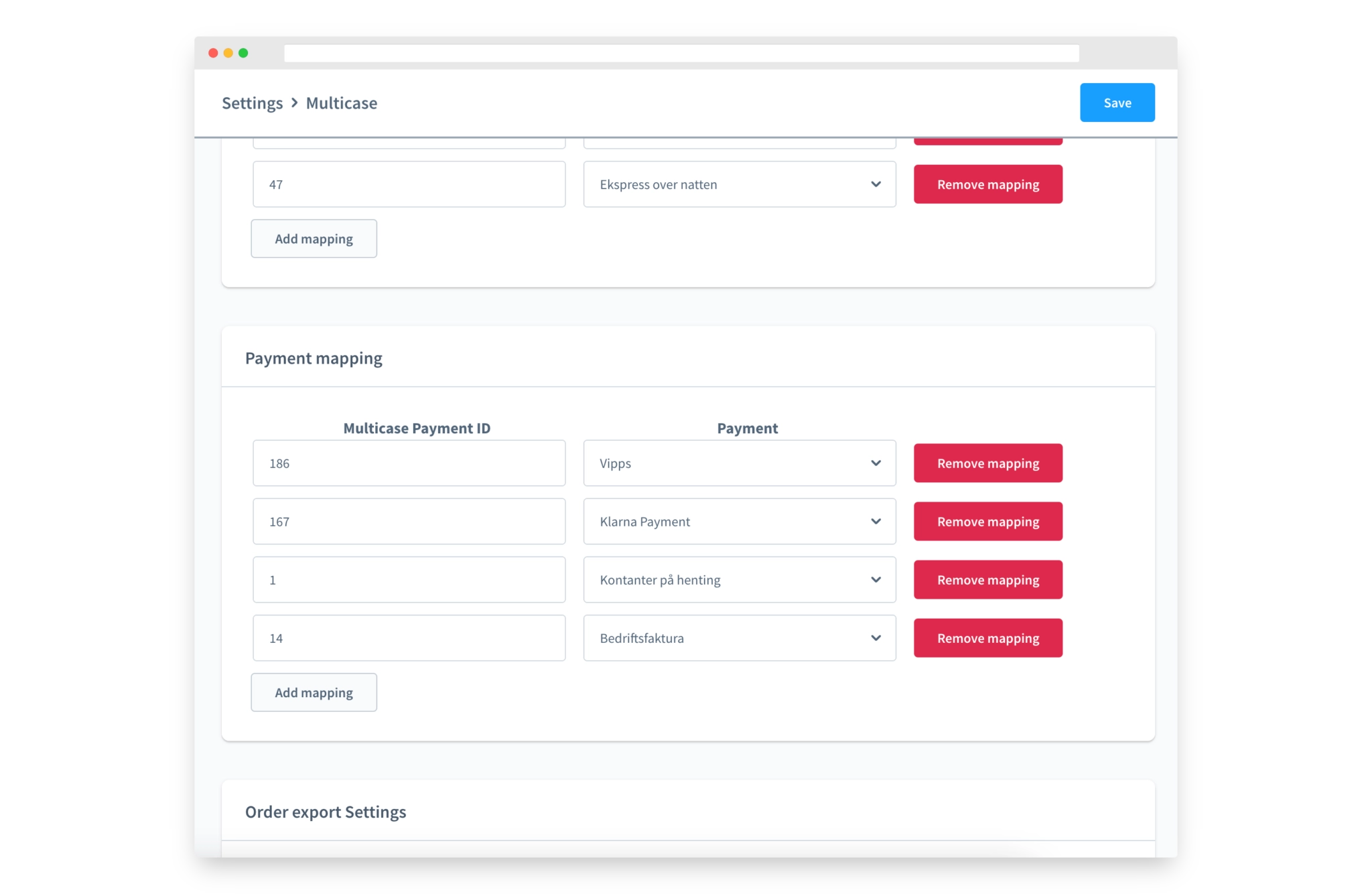Shopware integrated with Multicase ERP

In close collaboration with Multicase and our shared customer Vertical Playground, we have developed a complete two-way integration between Multicase ERP and the Shopware e-commerce platform.
This means you can now combine one of Norway’s most widely used ERP systems with one of the market’s most modern and efficient e-commerce platforms — Shopware.
“We’ve been very satisfied with Multicase as our ERP, but we’ve outgrown their built-in webshop solution. With the new integration between Multicase and the highly modern Shopware platform, we now get the ‘best of breed’ — the ERP that works best for us, combined with a top-tier, flexible e-commerce platform.”
– Trygve Sande, CEO, VPG
What’s included in the integration?
Products, inventory, and pricing
All products — including variants and bundles — are automatically synced from Multicase to Shopware. This includes product codes, names, prices (both cost and sales), and linked variant structures. Bundle products in Multicase are also handled via a third-party connector developed by Flow, available to customers who need this.
Inventory levels are synced in near real time. Multicase acts as the master, but Shopware continues to operate independently if the connection is temporarily unavailable.
There’s also support for syncing customer-specific pricing (price groups) from Multicase to Shopware. This means all pricing logic can be managed from Multicase — although we generally recommend using a pricing tool like RePrice in parallel.
Orders
Orders created in Shopware are instantly sent to Multicase for processing (picking and packing). Once fulfilled, Multicase sends updates back to Shopware to finalize the order — including capture of payment via the customer’s selected method.
Customer comments submitted in checkout are also transferred with the order.
Additionally, historical orders from Multicase are now visible on the customer’s account page in Shopware — even orders that were not originally placed via the webshop.
Customers
New customers can be created in either Shopware or Multicase, with Multicase acting as the master in both cases. Shopware-created customers are immediately assigned a Multicase customer number (this behavior is configurable).
If an existing customer places an order as a guest in Shopware, you can enable automatic matching against existing customer records, assigning the order to their account — without requiring login.
Which stores are already live?
VPG (Vertical Playground) in Oppdal — a long-time and satisfied Multicase user — launched Shopware with this integration in June 2023.
Mylna Group in Drammen, which recently adopted Multicase and has been rolling out Shopware across all its webshops, is set to implement the same integration on its first site in September 2023.
We currently have capacity to onboard 1–2 more Multicase customers to Shopware e-commerce before the end of 2023.
What does the integration cost?
Our Shopware integration comes with a standard one-time fee of NOK 150,000 + 20% annually for ongoing updates and maintenance. This includes installation assistance and basic onboarding support. Custom development, testing, and adaptations are billed as project work.
Multicase will also charge separately for their part of the integration.
Interested? Let’s talk.
Reach out to us to learn more about how the integration works, and how we can help you get started.